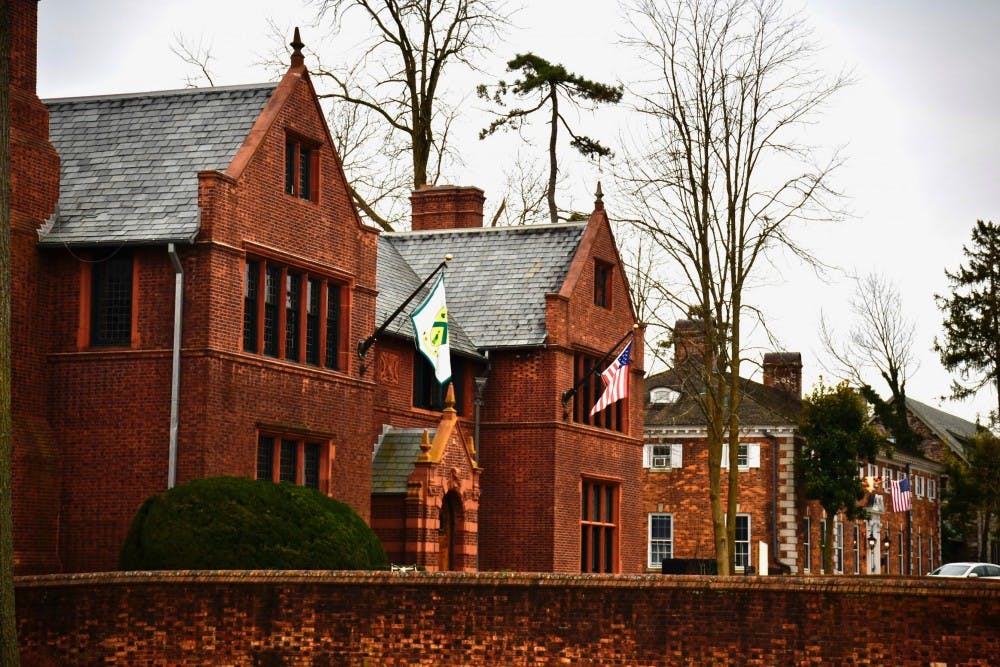Firstly, I wish to thank the Black Justice League (BJL) for its primary role in the renaming of the School of Public and International Affairs (SPIA). Fail as he may to acknowledge the BJL by name in his June 27 letter to the University community, President Eisgruber cannot erase the collective memory of Black students’ impact on Princeton. As long as students, alumni and faculty continue to amplify the real history and material forces that brought us this far — namely, the BJL’s incredible direct action against the administration five years ago — whitewashing can never win.
Over recent days, I and many of my peers have expressed outrage on social media at Eisgruber and the University’s lack of commitment to any further action beyond removing Woodrow Wilson’s name from campus, given that the renaming of the School was only a small part of the BJL’s demands and the demands of the newest campaign, Change WWS Now.
This hollow, liberal identity politics, by which the U. condemns “racism” without addressing any of the racialized class relations that students say pervade spaces across campus, should not surprise us. The University does this all the time, from touting “a truly diverse community” through admissions practices while failing to adequately support Black students after they arrive, to conveniently promoting the work of African American Studies professors during the current national uprising while making no commitment to hire more Black scholars.
But shallow, symbolic reformism is not a problem for our trustees or president alone. We too, as students and alumni, regularly engage in a similar politics. This is a potentially more difficult, more uncomfortable reality that I hope my peers are ready to unpack and address, because it necessitates that we work on ourselves and own up to our complicity in white supremacy at Princeton, at the same time that we fight the powers that loom over us.
Students engage in this brand of politics especially through their participation in, and attempted reform of, exclusionary social organizations, from Greek life organizations to performing groups, student government, and especially the 11 eating clubs. All of these organizations and others reproduce the marginalizing, curatorial, fundamentally anti-Black practices and dynamics typical of the University, despite attracting progressive individual students, diversifying their memberships, and claiming to do things differently than in the past.
Somehow, anti-Black dynamics persist in student spaces from the Street to USG, despite the many woke, well-read, purportedly anti-racist students in charge, and the pandering letters that they pen. My own participation in the eating clubs system, from bickering one club to spending two semesters in an equally toxic sign-in, serves as a stark reminder to myself that my own supposedly progressive values are only as good as how and when I put them into practice.
And on the topic of progressives, while albeit disgracefully defending Wilson’s legacy, President Eisgruber accurately pointed out that it was the white supremacist Wilson who was fired for standing up to the eating clubs. Yes, President Woodrow Wilson challenged the eating clubs as students themselves defended them — and any student who continues to defend and participate in these and similar clubs over 100 years later should be deeply embarrassed by this fact. We should be particularly ashamed and motivated to re-examine these spaces because it is not just the eating clubs that produce these dynamics, but every debate team, every a cappella group, and every entrepreneurship club that borrows the eating clubs’ marginalizing, discriminatory, self-important admissions process.
Why revisit these toxic spaces — and liberal students’ role in creating and upholding them — while we continue to fight for change at the SPIA and University? Well, consider that the University is directly and undeniably beholden to the monetary whims of its alumni. How can we possibly expect alumni to advocate for the dismantling and abolition of white supremacist institutions if they spent their most formative college years participating in, defending, and reforming those very institutions — and, in the years after, donating to them at Reunions? We are made to be reformists, so it makes sense when the University, under the influence of current alumni classes, engages in reformist pandering at the highest levels.
We must cast away reformism and abolish the toxic spaces we ourselves create — not only to make students’ lives better in Princeton’s future, but to transform our own politics, to better steel us for the fight against both fascist white supremacy and its liberal-reformist cousin. With enough self-reflection, accountability and organizing, the rising alumni classes will never let the University or any other institution beyond it water down our demands for justice again — because, while reformism may be part of Princeton’s DNA, there is also a deep tradition of University alumni who take radical, direct action when faced with injustice, from the anti-war organizers of the late 1960s to the Black Justice League. We must follow their examples.
Indeed, despite the pervasiveness of symbolic reform, we have good reason to be confident in our prospects, because the current moment, following the murders of George Floyd, Tony McDade, Breonna Taylor and countless others before them, truly feels different. Symbolic, reformist politics faces a reckoning like no other in recent memory as more and more people adopt the language of police and prison abolition, and Black visionaries like Mariame Kaba resist its co-optation. If we look both inward and outward, abolishing the halls of white supremacy we control, while fighting for the abolition of those we do not, we will never be defeated.
Thank the BJL. Take accountability. Keep up the fight.

William Grear is a member of the Class of 2020 with an A.B. in Politics. He can be reached at wgrear@princeton.edu.








